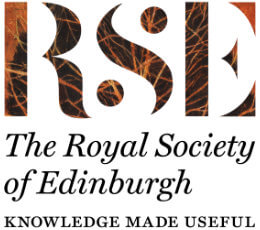Link to the episode:
Closed captioned video:
Show Notes
On episode 2, we welcome Grenville Hancox who is well known as a teacher, performer and conductor initiating and researching music and health activities. He is artistic director of Canterbury Cantata Trust a charity he founded in 2012 developing a collection of singing groups including Sing to Beat Parkinson’s all demonstrating the principle of caring through singing. He is both Emeritus Professor of Canterbury Christ Church University and Honorary Professor at Kent University and was awarded the MBE for services to Music in 2005 and a Civic Award by Canterbury City Council for services to the community through music in 2006.
Yoon Irons, a leading researcher, singer and qualified music therapist. Her research has focused on using singing to improve the quality of life and wellbeing of people with chronic health conditions and disabilities. Her past and current research projects include singing interventions for children with cystic fibrosis, and adults with chronic pain, Parkinson’s, Aphasia and spinal cord injuries. She has published in international peer-reviewed journals, including Cochrane Systematic Reviews. Currently, she is a senior research fellow at the Centre of Excellence in Arts in Health, University of Derby (UK) and an adjunct research fellow at the Queensland Conservatorium Research Centre, Griffith University in Brisbane, Australia.
Rachel Hynes, a Scottish based singing for health practitioner who was a vocal Leader on the inaugural Memory Spinner’s Project at Scottish Opera, a collaborative Dementia Singing Group with Alzheimer’s Scotland, is singing leader working with Common Wheel, a mental health music charity based at Gartnavel Hospital and has trained with the British Lung Foundation, learning ‘Singing for Breathing’, to help with breath management in people with long term lung conditions such as COPD, Asthma, IPF and Bronchiectasis.
The show is presented by Brianna Robertson-Kirkland, who is Principal Investigator of the Network.
The show’s producer and editor is Sophie Boyd.
Below, we have provided links to resources mentioned on the episode.
More details about the Network
Website: https://portal.rcs.ac.uk/scotland-singing-for-health-network/
Get in touch: singing-for-health@rcs.ac.uk
Twitter: @ScotSingHealth
Remember to Tweet us with #changetheworldonesongatatime
Key links
Parkinson’s UK in Scotland https://www.parkinsons.org.uk/about-us/parkinsons-uk-scotland
East Midlands Local Parkinson’s Excellence Network: https://www.parkinsons.org.uk/professionals/east-midlands-local-parkinsons-excellence-network
Singing Groups and Organisations supporting Singing for Health mentioned in the episode:
Ayrshire Parkinson’s Community Singers: https://volunteer.parkinsons.org.uk/opportunities/25536-activity-host-activity-volunteer-parkinson-s-community-singers-2022-02-02 (Facebook group: https://www.facebook.com/groups/parkinsonscommunitysingers)
Sing to Beat: https://www.singtobeat.co.uk/stb-parkinsons-groups/stb-parkinsons-groups-scotland
Sing to Beat Parkinson’s Training: https://www.singtobeat.co.uk/stb-parkinsons-training
Canterbury Cantata Trust: https://www.canterburycantatatrust.org.uk/
Skylarks on YouTube: https://www.youtube.com/watch?v=Bi0TkWuXVNk&list=PLPkGOpVuAFC5o0JqrFEs2TmUMvriJHJS4
Singing4Fun run by Penny Stone: https://www.edinburghparkinsons.org/activities-and-events/regular-activities/singing4fun/
PCS Song mentioned in the podcast (insights by Rachel Hynes)
“The Platform Singers Song was created from a 3-part song about singing and breathing called ‘Sing, Sing, Sing’. Before the pandemic the Platform Singers created a ‘protest rap song’ for a local community project in Easterhouse, and I discovered that we had several good lyricists in the group. During lockdown, I challenged them to create lyrics about the group based around the tune to ‘Sing, Sing, Sing’. I recorded the audio parts individually for them to learn and then, over two online sessions, we recorded the audio individually, mimed the video and a colleague at Platform used technical wizardry to join it all together and create our wonderful video. It felt great to create this at a time when, due to online sessions, we couldn’t really hear ourselves singing together! Very nourishing, but also a learning curve as to how to combat nerves when having to sing ‘alone’ to the MD!
The PCS song was written entirely by the group during self-led sessions when I was away working. It was a few months after we had been working together but gave me a huge insight into how much of my instruction, people had absorbed! I was really inspired!”
Here are the lyrics:
OB-LA-DI, OB-LA-DA (thanks and apologies to Lennon&McCartney)
Rachel gets us singing on a Monday night,
Jane collects the money at the door,
Christine sets out goodies for us all to share
While Andy wrestles with the chairs upon the floor.
P-C-S, P-C-S, life goes on, la-a
La-la, how the life goes on.
P-C-S, P-C-S, we sing on, la-a
La-la, how the life goes on.
Pulling funny faces we begin to sing,
Lions, owls, ducks and horses too.
Belly breaths and yawning make the high notes ring
While body-tapping helps to warm us through and through.
Action songs, Action songs, we sing on la-a
La-la, how the life goes on.
Action songs, Action songs, we sing on la-a
La-la, how the life goes on.
In a couple of months we have built a happy choir.
With a little luck we’ll be good enough – to sing round all
Ayrshire!
Isaac, Stewart, Andy, Brian hold the bass,
All the ladies sing in harmony
Rachel keeps us going at a cracking pace
And leaves us gasping for a welcome cup of tea!
Cup-of-tea, piece-of-cake, we sing on, la-a
La-la, how the life goes on.
Cup-of-tea, piece-of-cake, we sing on, la-a
La-la, how the life goes on.
Happy ever after in our singing group,
Parkinson’s won’t stop us going on.
We will keep on singing, dancing, having fun
We hope you’ll join the PCS and come along.
P-C-S, P-C-S, come and join us
La-la, how the life goes on.
P-C-S, P-C-S, we sing on, la-a
La-la, how the life goes on.
And if you want some fun.
Just join the PCS!
(Members of Ayrshire Parkinson’s Community Singers, 19th August 2019)
(Updated 2nd September 2019)
Key research
- Yoon Irons, Grenville Hancox (2021) Singing (Arts for Health). Emerald Publishing Limited.
- Yoon Irons, Grenville Hancox, Trish Vella-Burrows, Eun-Young Han, Hyun-Ju Chong, David Sheffield & Donald E. Stewart (2021) Group singing improves quality of life for people with Parkinson’s: an international study, Aging & Mental Health, 25(4), 650-656, https://doi.org/10.1080/13607863.2020.1720599
- Yoon Irons, E Coren, MK Young, DE Stewart, M. Gschwandtner, GD Mellick (2019) Singing for people with Parkinson’s disease. Cochrane Database of Systematic Reviews 2(2). Art. https://doi.org/10.1002/14651858.CD013279.
Nicola Wydenbach, Trish Vella-Burrows, Grenville Hancox (2019) Singing for People with Parkinson’s Designing and Delivering Singing Sessions for People with Parkinson’s and Other Degenerative Neurological Disorders. Compton Publishing.
Cristina Nombela, Laura E. Hughes, Adrian M. Owen, Jessica A. Grahn (2013) Into the groove: Can rhythm influence Parkinson’s disease?, Neuroscience & Biobehavioral Reviews. 37(10). https://doi.org/10.1016/j.neubiorev.2013.08.003.
Smell and Parkinson’s (News)
- Smell of skin could lead to early diagnosis for Parkinson’s, The University of Manchester, https://www.manchester.ac.uk/discover/news/smell-of-skin-could-lead-to-early-diagnosis-for-parkinsons/.
Ellie Roger (2021) Discovering the smell of Parkinson’s, Edinburgh Impact, University of Edinburgh, https://www.ed.ac.uk/impact/research/future-health-and-care/discovering-the-smell-of-parkinsons.
Smell and Parkinson’s (Research)
Katie L. Burke (2019) On the Scent Trail of Parkinson’s Disease. American Scientist, 107(4), Gale Academic OneFile, link.gale.com/apps/doc/A593353302/AONE?u=anon~49e93af2&sid=googleScholar&xid=dbbfa37c.
Alison George (2019) The woman who can smell Parkinson’s, New Scientist. https://www.sciencedirect.com/science/article/abs/pii/S0262407919304257.
Valentina Oppo, Marta Melis, Melania Melis, Iole Tomassini Barbarossa and Giovanni Cossu (2020) Smelling and Tasting” Parkinson’s Disease: Using Senses to Improve the Knowledge of the Disease, Front. Aging Neurosci https://doi.org/10.3389/fnagi.2020.00043
Speech Therapy, Singing, and Parkinson’s Disease
Caroline Evans, Michael Canavan, Christopher Foy, Roger Langford & Ruth Proctor (2012) Can group singing provide effective speech therapy for people with Parkinson’s disease?, Arts & Health, 4(1), 83-95, https://doi.org/10.1080/17533015.2011.584883
- Tamplin et al. (2019) ParkinSong: A Controlled Trial of Singing-Based Therapy for Parkinson’s Disease, Neurorehabilitation and Neural Repair, 33(6), pp. 453–463. https://doi.org/10.1177/1545968319847948.
Hard wired to sing
Robin Dunbar (2005) The Singing Neanderthal’ (S.Mithen). Brit. Archaeol. [July/August 2005], p. 48.
Music featured in the episode:
Intro music: Free Over the Fields (ID 1622) by Lobo Loco (licensed under a Attribution-NonCommercial-ShareAlike 4.0 International License)
Outro music: Fire Fire, sung by the Ayrshire Parkinson’s Community Singers, recorded by Rachel Hynes.
‘Fire Fire’ is a popular song performed by community singing groups. It has passed on from leader to leader, with permission to use and thus evolved as it is often learnt by ear and passed on through performance.



